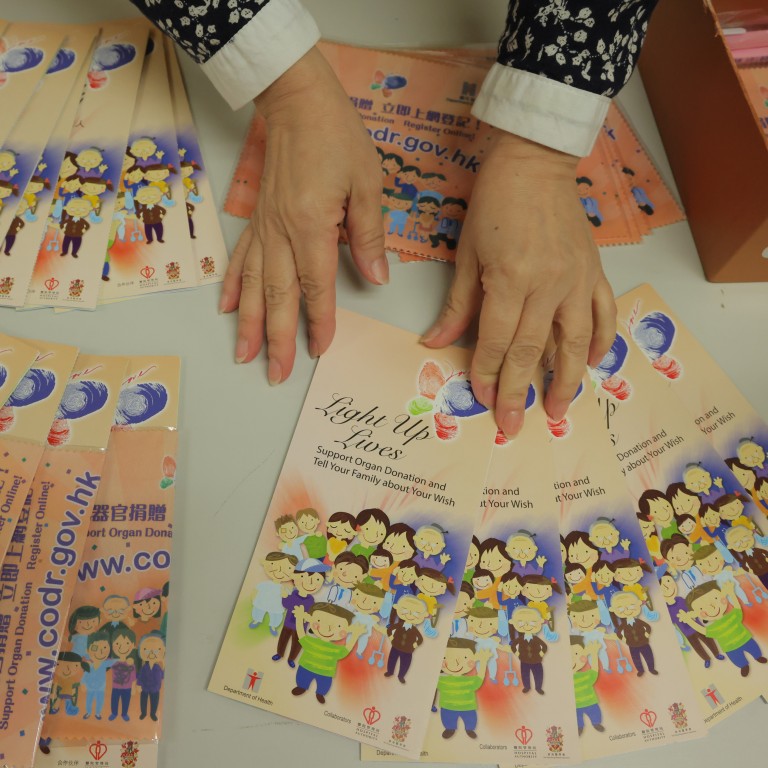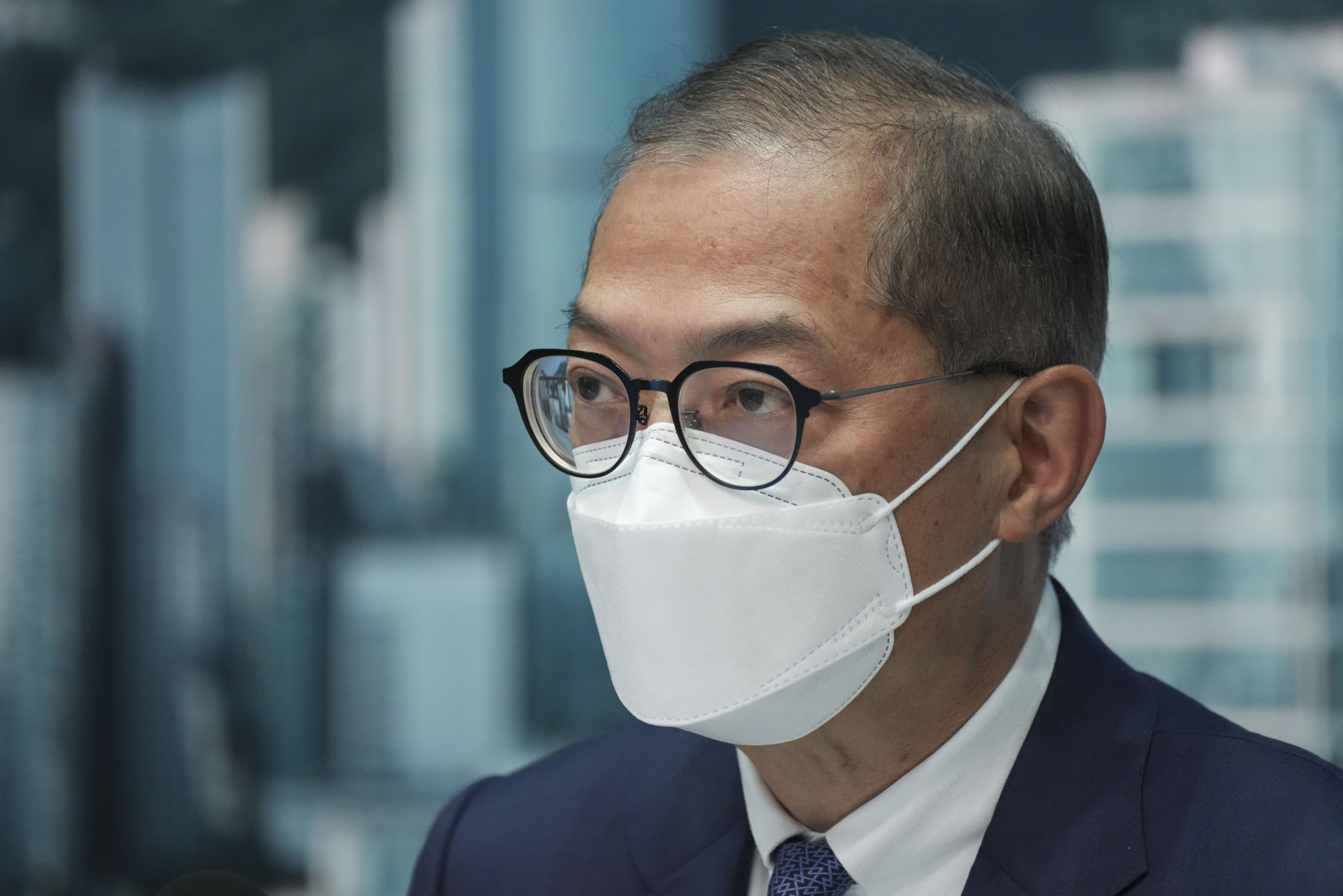
Hong Kong may ask organ donors to verify identity amid spike in withdrawal requests, minister reveals as he hits out at rumour mongers
- Secretary for Health Lo Chung-mau doubles down on proposed cross-border transplant mechanism with mainland China
- Lo calls for people spreading ‘rumours and false claims’ to stop immediately
“Our good intentions of creating a basic system where you can simply sign your name and register do not appear to have worked,” Lo said during a television interview.
“We hope to guarantee that, whether residents have signed up or not, there will be more verification of their identity … this is something we can improve on in terms of a computer system.”

The minister said it was “quite depressing” that the donor registration system had to be improved in the first place, as it was a way for residents to show their love and respect for life.
“However, we are unlucky that a minority of people with ulterior motives want to destroy our organ donation system,” he said.
The Department of Health also announced on Sunday that it would launch a new feature for the register, allowing users of the “iAM Smart” electronic identification system to check their registration status.
Health Bureau figures showed 5,785 withdrawal applications were sent between last December and April, with more than half involving people who had never signed up or made repeated attempts to withdraw.
Shorter wait for transplants? Hong Kong weighs cross-border organs exchange
There are currently more than 357,000 registered donors, up from 45,150 in 2009. The register was set up in 2008.
On Sunday, Lo reiterated that police would target those spreading false information that could have contributed to the wave of withdrawal requests.
“Registering with or withdrawing from the organ donor register is completely voluntary,” he said. “All investigations will target the behaviour of people who are making rumours and false claims.”
Among the rumours were that residents would be considered organ donors unless they applied to withdraw and that people would be sent to mainland China as living donors.
Hong Kong baby Cleo now breathing unaided after first cross-border organ transplant
Vowing to press ahead with the proposal for a cross-border transplant mechanism, Lo said: “If we stop the discussions for a moment … it will be a major loss for our patients.”
“Those who should really stop for a moment are those who are making rumours and false claims online … I don’t think they should even temporarily stop, they should stop doing this immediately.”
When asked if authorities would consider an option for donors to opt out of the cross-border mechanism, he said they would not allow any preferences for donating or receiving organs to prevent conflicts of interest and discrimination.
He said the proposed mechanism would only be used in cases where a local recipient could not be found.

“We will only activate the ‘second-tier’ cross-border organ transplant mechanism when there are no matches in Hong Kong for donated organs,” Lo said.
Hong Kong’s organ donation rate is among the lowest in the world, with just 29 people donating their organs after dying last year and 23 giving a kidney or part of their liver as living donors.
According to health authorities, patients in the queue for a kidney transplant needed to wait five years on average, with the longest one taking 29 years. Those requiring heart, lung or liver transplants could expect a wait of two to three years.
On the other hand, more than 1,000 organs donated on the mainland last year could not be matched with suitable recipients.
Hong Kong baby’s heart transplant sparks hopes of long-term cross-border scheme
Separately, Cheung Suk-man, an organ donation coordinator at Tuen Mun Hospital, said she had not yet encountered families of patients who refused to proceed with a donation because of the prospect of it being used for a cross-border transplant.
“I handled two cases this week, but in the end, the families did not mention any worries about cross-border donations – it could be because the public is still digesting the information,” she said.
Cheung added that families mostly refused to donate organs in cases where a death occurred suddenly and relatives were still grappling with the person’s passing. Such cases could be complicated further by a lack of previously expressed wishes about organ donation by the patient.
Police to target organ donation rumour mongers, Hong Kong health chief warns
Another major reason for rejection was the wish to keep a relative’s body intact, she said.
The coordinator noted she was not worried about the withdrawal of donors from the register as these patients were in the minority. Cheung said that most past donors were not registered, but they had expressed their intention to their family before being placed on life support.
According to the Hosptial Authority, there were between 80 and 120 patients classified as brain dead in the city every year. About 40 to 45 per cent of these patients’ families agree to donate their relative’s organs.

